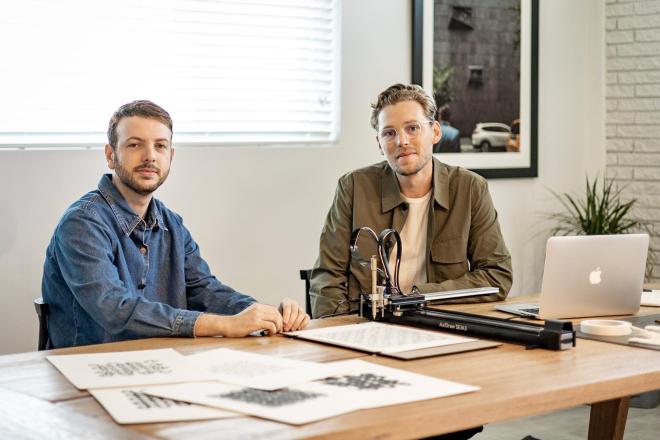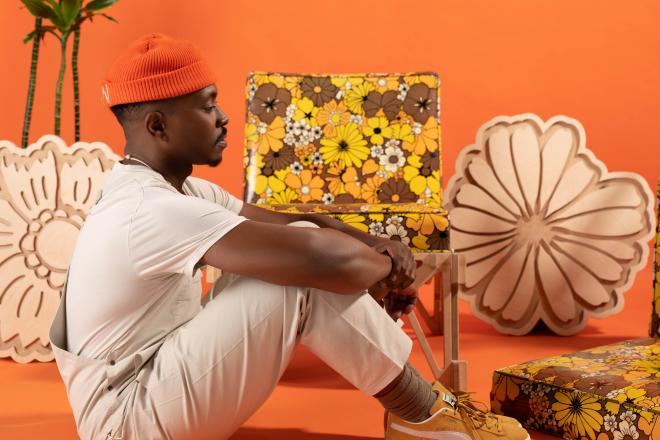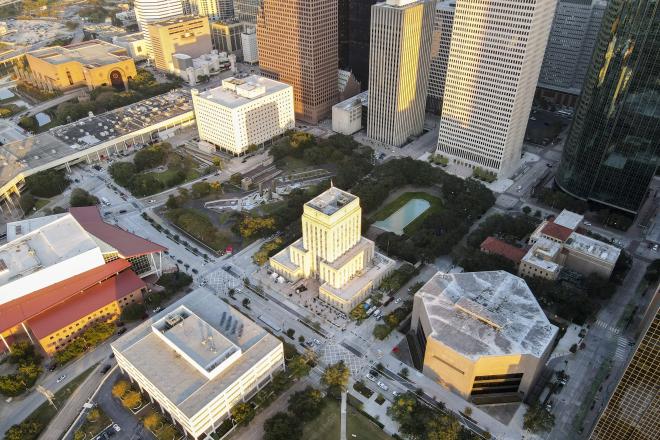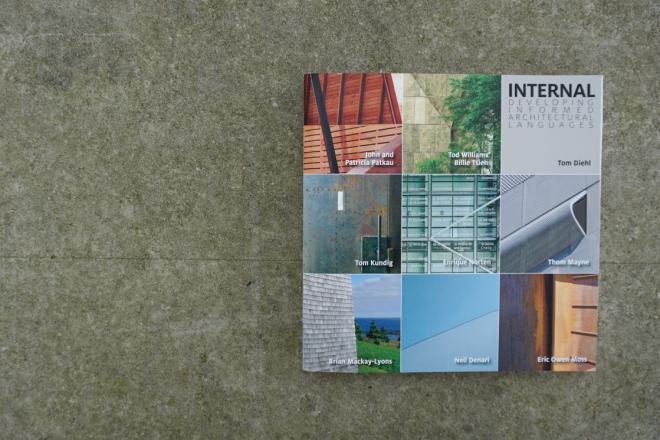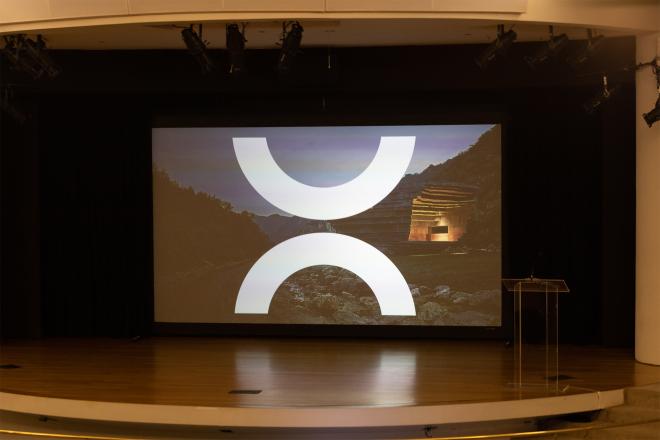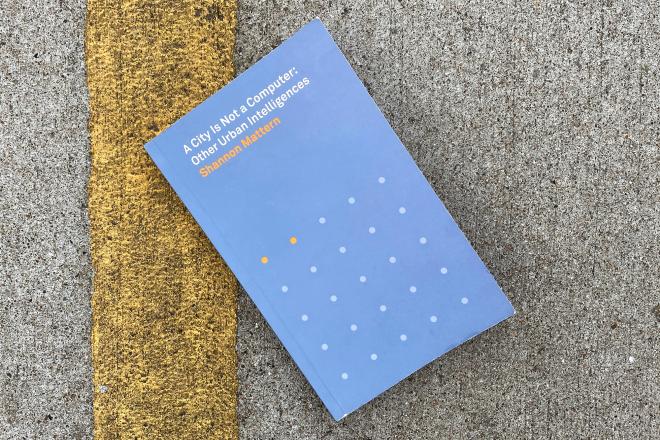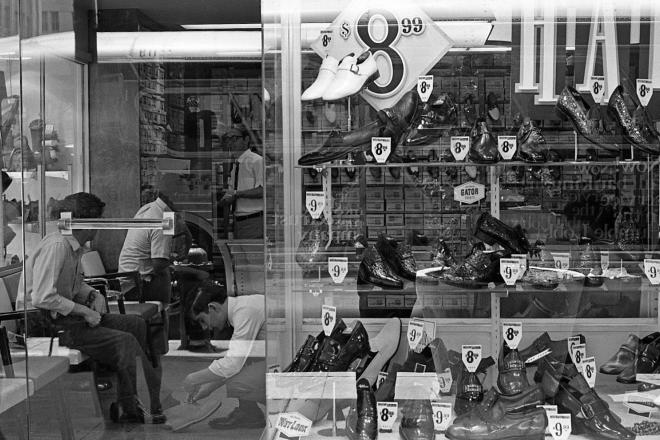
Photo of Karenni scarf from The Community Cloth
The Karenni people originate from the mountainous border region of the embattled country previously known as Burma. On a Saturday afternoon, at the Alliance Gallery, I stand and watch as Karenni women spin, warp, and weave thread imported from Thailand into tight vibrant swaths of cloth. This is just one of the groups of refugee women that The Community Cloth has gathered to produce and sell their traditional textile. The Community Cloth’s mission is to empower immigrant communities in Houston by investing in a refugee-led, refugee-owned microenterprise run under the umbrella of Our Global Village. In collaboration with Houston Arts Alliance Folklife program, the Karenni woven works are displayed on the walls through July 6.
When I arrived at the Gallery to see the demonstration and the exhibition Weaving Home, I was thinking of Alice Walker’s short story “Everyday Use.” In the story, a woman returns from college to her rural Southern home to visit her mother and sister. Though she once felt ashamed of her heritage, she now sees her family’s heirlooms as badges of authenticity. What I remember most about the story is the conflicting perspectives of the sisters toward a quilt. One thinks that it should be held and used, and the other that it should be protected as an object and hung on a wall. The implications of that story worry me as I watch the Karenni women’s deft fingers. What happens when objects embedded in communities become art commodities?
In a gallery, the works do hang like art. The rich hardiness of the material and prominence of traditional Karreni colors red, white, and black stand vibrantly against the stark white walls. But onlookers seem to know instinctively that this art is different as they reach out and run their fingers over the textiles. During the weaving demonstration, the weavers themselves are objects of admiration. Unable to speak English, they look serious as their work is explained and discussed and pointed at. The weavers watch us too, but appear to be mostly eyeing their work. One weaver sits on the floor, one end of her work attached to the wall as she pulls and combs the threads. Another weaver stands winding a ball of thread. And a third hovers over a long contraption that we are told warps the thread in preparation for the loom.
Recent estimates count nearly 90,000 refugees fleeing Myanmar’s recent sectarian violence and political unrest. Most Houstonians would not suspect that Myanmar refugees constitute one of the largest refugee populations in Houston. This Karenni community was found living in an apartment complex near Bellaire and 59, a mecca of Houston’s many immigrant communities. Facilitated by The Community Cloth, this group of women have been working to share and remember their traditional weaving practice. They even convinced apartment owners to donate an apartment specifically designated for the weavers to work.
“Folk traditions are often dismissed as an automatic response,” says Pat Jasper, Houston Art Alliance’s Folklife Director, “People say, we always did it this way.” But here we witness the integration of art and tradition, repurposing what may be seen internally as common custom into something exceptional to the larger community. As a community folklorist, Jasper is always looking for ways to give public recognition to what could be dismissed on the road to assimilation, recognizing that shedding our differences is not always a good thing.
So what role do we play in the story? Does hanging a Karenni scarf on a gallery wall diminish it? Perhaps not. Weaving Home is an opportunity to acknowledge the traditional skills of the Karenni community in Houston. When we wear their work or hang it on the wall, we assign value to their tradition. By recognizing their craft, The Community Cloth and Houston Arts Alliance seek to sustain the existence of Karenni weavers. If we purchase a piece of their work, which costs an average of $35 and are available at thecommunitycloth.org, all proceeds go to the artisan. This, in turn, encourages and enables the weavers to weave. And we get the chance to maintain the beautiful and increasingly rare proof of difference that can draw us together.
by Nicole Zaza
Coming Event
World Refugee Day Reception, Thursday, July 5, 5:30 – 7PM
Houston Arts Alliance 3201 Allen Parkway, Ste. 250 Houston, TX 77019
This reception honors and celebrates the wide community of refugees that have found their way to Houston and the many agencies and volunteers who serve them. Houston’s World Refugee Day Co-Chairs, Lizeth Zavala and Emily Stickle, will review the 2012 event and share plans for 2013.
For more information, check out this great video made by CultureMap



